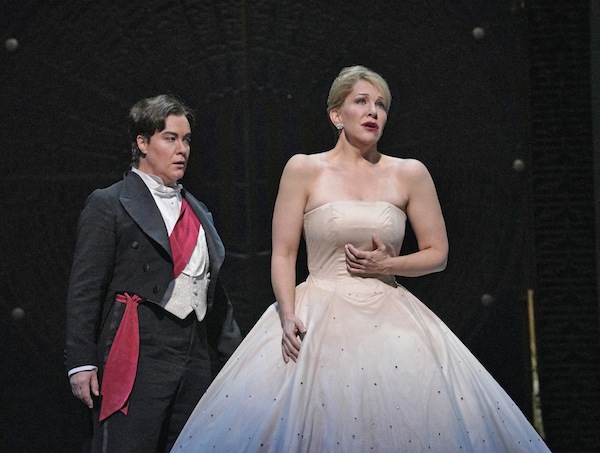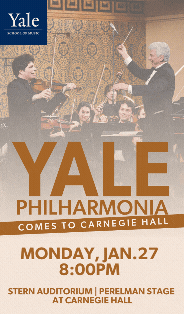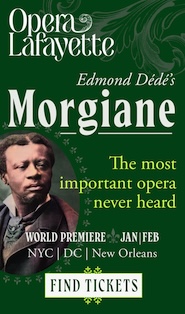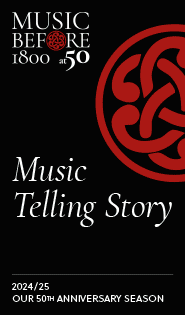Massenet’s glorious score emerges as the star in Met’s riotous “Cendrillon”

Joyce DiDonato and Alice Coote star in Massenet’s “Cendrillon” at the Metropolitan Opera. Photo: Ken Howard
The Metropolitan Opera has found its sense of humor—in the person of Laurent Pelly. The long-overdue company premiere of Massenet’s Cendrillon, which opened an eight-performance run on Thursday night, is the most enchanting, endearing, riotously funny comedy to appear on the Met’s stage in recent memory.
Humor and fairy-tale fancy coexist beautifully in Pelly’s staging. The basic concept of the sets, delicately executed by Barbara de Limburg, is simple: white interior walls with double-doors frame the playing area, with sets of double doors serving as entrances through which various characters and extras make their sudden appearances,while smaller modules are wheeled on to create specific settings as needed. Aside from a stunning palace gate in gold for Act II, the only ornamentation is the text of Charles Perrault’s 1697 fairy tale printed across the walls—a touch nicely echoed by the motif of oversized storybooks that appear throughout the production.
The real heavy lifting in establishing the world of the opera is done by Pelly’s own marvelously whimsical costumes. The core of the style is Belle Époque with a fanciful twist, but the haute couture of this fairy-tale world is delightfully bizarre. One of the great comic coups of the evening is the parade of daffy debutantes in the Act II ball scene, each sporting a dress more absurd than the last as they bounce, sashay, and galumph their way into the royal presence. The extended ballet that follows, choreographed by Laura Scozzi, is a triumph of its own, a wonderfully zany sequence involving the entire company in whimsy.
The two starry leads for this inaugural production are admittedly a bit of a puzzle, both giving lovely portrayals of their characters but neither seeming an ideal fit vocally.
Joyce DiDonato, the title’s destined princess, sounded a little tight, especially in the top range where her attempts to float pianissimos barely registered. Her greatest strength is the flexibility of her voice, but dramatic arias like Act III’s “Enfin, je suis ici,” require more weight than her nimble mezzo-soprano could provide. Yet despite some surprisingly uneven vocalism, her dramatic interpretation was moving—an abused innocent dreaming of just a shred of joy, and almost overwhelmed when at last she finds it.
Alice Coote, meanwhile, seemed to be pushing for much of the evening, and therefore never satisfied musically as the story’s Prince Charming. Her expressions of unbridled joy were especially rough, as she reached for volume at the top of her voice but found little color or warmth. She, too, gave a vivid dramatic portrayal of her own; here was a despondent prince who has given up on the idea of finding love until “the real thing” finally catches him off guard and consumes him entirely.
For the company premiere, the Met has brought together an ideal supporting cast of singing actors who gamely take on Pelly’s farcical reading of the work, playing up the physical comedy of their characters.
Chief among them is the dependably hammy Stephanie Blythe, bringing a voice of enormous, pulsing power and a domineering presence as the cruel stepmother. Ying Fang and Maya Lahyani portrayed Noémie and Dorothée, the two evil stepsisters, as a pair of hilariously doltish brats, for whom even staying upright in their bulbous dresses was a daunting challenge.
As Pandolfe, Cendrillon’s kindly father, Laurent Naouri displayed a warm, woolen quality in his bass-baritone, and was one of the few actors who got to play both sides. His character’s flustered humor came through in his dealings with his harridan wife, yet in his moments of tenderness with his daughter there was an endearing weariness in his portrayal.
Coloratura soprano Kathleen Kim offered most of the vocal fireworks for the night in the high-flying role of the Fairy Godmother, singing with shining brightness and showing off a suppleness even in her top range. Fitting with the cheeky spirit of the evening, her take on the opera’s divine intercessor is a hip-swaying diva. Bradley Garvin brought a smooth baritone and endearingly harried demeanor as the King.
The opera itself emerged as the real star of this production premiere. The Met has done well by Massenet lately, with a revival of Thaïs earlier this season and recent productions of Manon and Werther entering the regular rotation with A-list casts.
Cendrillon may not have the passionate depth of those operas (the latter two especially), but it has all the rich humanity that makes those pieces so affecting. Massenet had a knack for finding strong librettists (or librettist-teams), and Henri Cain’s work in this one features strong dramatic construction, balancing peppery wit with its softer poetic moments and offering breathing characters with whom we can’t help but fall in love.
Though there aren’t a lot melodies in Cendrillon that stand out among the composer’s most memorable, the score features that peculiar inspiration that gives Massenet’s best music its emotional force. While tinkling effects here and there evoke magical enchantments, for the most part the orchestration is light, enabling him to reach a lush romanticism when needed without feeling overwrought. There is a remarkable flexibility to much of the writing, adding musical wit to the comedic mix, with quickly turning, pattering trios and quartets. And as in so much of his greatest work, Massenet shows that special ability to move seamlessly from one mode quickly into the next.
After some initial unsteadiness, Bertrand de Billy recovered to lead a nimble account of the work, equally at home in its humorous flair and in its tender emotions. The chorus, in addition to singing with a lovely, soft haze in some key dramatic moments, were terrific sports, gleefully participating in all of the goofy hijinks.
It bears pointing out that this production originated in Santa Fe in 2006, so it’s hard to give the Met full credit for having brought it about. That said, it is a delightful addition to the company rep, and a superb argument for a piece that has too long been absent from this stage. Hopefully a strong audience response will encourage the Met to make it a regular feature of their ongoing Massenet renaissance.
Cendrillon runs through May 11 at the Metropolitan Opera. metopera.org







Posted Apr 13, 2018 at 4:30 pm by CastaDiva
I’d love to comment, but unfortunately, my comments are routinely refused on the (false) ground that I have already made them .
Posted May 01, 2018 at 5:40 am by Jean Roudier
This very creative version of Massenet’s “Cinderella” suffers from two drawbacks:
1/ Massenet’s music: plain and flavorless.
2/ Misdistribution of the parts. Joyce Didonato belongs more in “desperate housewifes” than Cinderella. Alice Coote does not impersonate Prince Charming (reasons too politically incorrect to develop here).